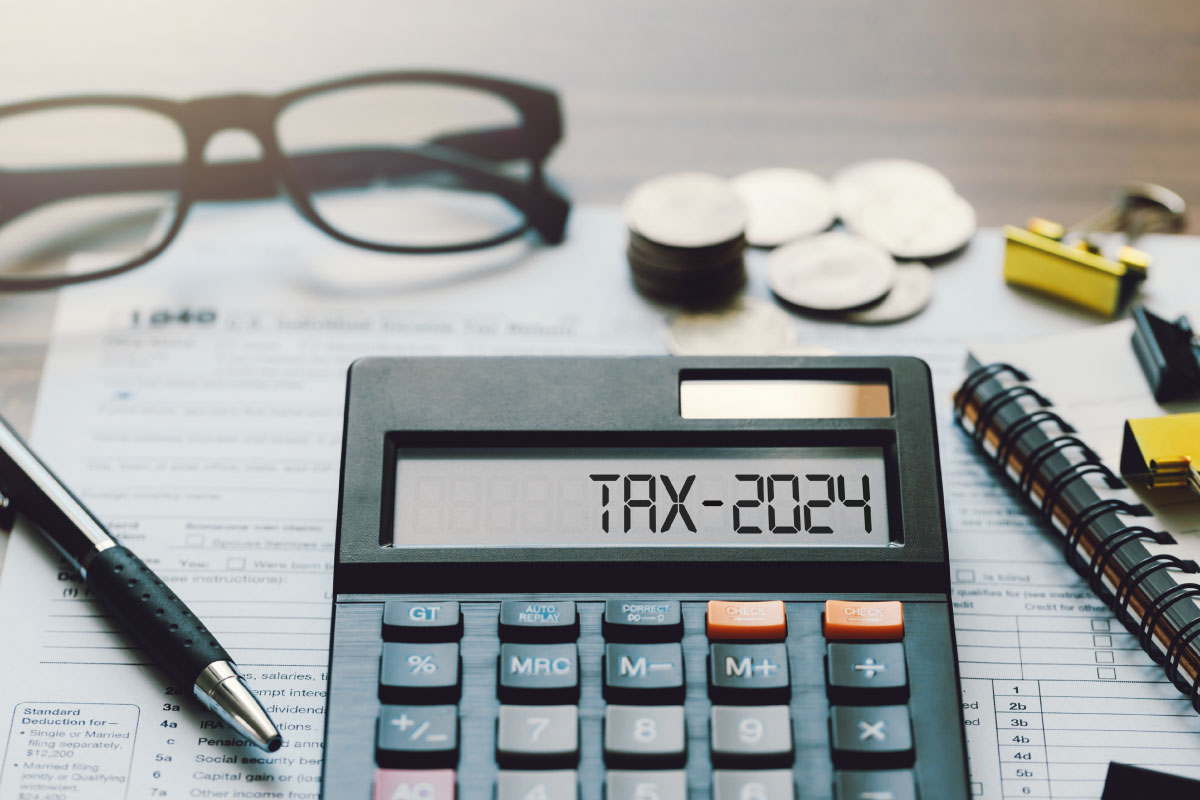How much is sales tax in New York
Ever wondered how to calculate New York sales tax and why it varies so much depending on where you shop as a buyer or where you sell if you’re an online seller? It is essential to grasp the intricacies of New York’s sales tax whether you’re a business owner trying to comply with state regulations or a consumer wanting to know exactly what you’ll be paying at checkout.
This guide will walk you through the process, ensuring you have all the information you need to make informed decisions.
What is the Sales Tax Rate in New York?
New York State has a base sales tax rate of 4%, but many localities add additional sales taxes on top of that. For example, New York City has a local sales tax of 4.5%, bringing the total sales tax rate in New York City to 8.875% (4% state + 4.5% city + 0.375% Metropolitan Commuter Transportation District surcharge).
Why Does New York Sales Tax Vary So Much?
In New York, the base state sales tax rate is 4%, but that’s just the tip of the iceberg. Local jurisdictions, including cities and counties, can impose additional sales taxes of up to 4.875%, leading to a combined sales tax range of 4% to 8.875%.
For instance, shopping in New York City will have a different tax rate compared to a small town upstate.
How to Calculate Sales Tax in New York: A Step-by-Step Guide
To calculate your sales tax in New York, simply find your local rate (which combines state and county/city taxes) using online tools or the Department of Taxation and Finance website. Then, add that decimal rate to the product price and multiply to find the sales tax amount. Finally, add the sales tax amount to the original price to get the final price you’ll pay.
Below is a detailed breakdown of how you should calculate your sales tax in New York or how much sales tax you should charge in New York
1. Determine the Location of the Sale
The first step to calculate New York sales tax is identifying the exact location of the sale. This is important because New York has varying tax rates depending on the state, county, city, and any special tax jurisdictions involved. Here’s how to proceed:
- State Level: Begin by identifying the state, which is New York in this case.
- County Level: Determine the county where the sale occurs. For instance, if the sale is in Erie County, note that Erie County adds its own tax rate.
- City Level: Identify the city. For example, sales in New York City will include an additional city tax.
- Special Districts: Check for any special districts that might impose additional taxes, such as transit or school districts.
Knowing the exact location helps ensure that you apply the correct combined tax rate, avoiding under or overpayment.
2. Look Up the Applicable Tax Rates
Once you have the location, you need to look up the applicable tax rates. New York’s tax structure is layered, so you need to consider several components:
- State Tax: The base state tax rate for New York is 4%.
- County Tax: Counties can impose additional sales taxes. For example, Erie County adds 4.75%, making the total sales tax rate 8.75%.
- City Tax: Cities can also impose their own taxes. New York City sales tax includes an additional 4.875%, leading to a total combined rate of 8.875%.
- Special District Taxes: Some areas may have special district taxes for specific purposes. These could be for transit, school districts, or other local needs.
To find the exact rates, you can use tools like the New York Sales Tax Calculator or check the sales tax by ZIP code NY for precision.
3. Apply the Combined Tax Rate to the Sale Amount
After determining the applicable tax rates, combine them to get the total sales tax rate for the location.
Example of How to Calculate New York Sales Tax:
Suppose you are calculating the sales tax for a $1,000 laptop purchase in New York City. Here’s a step-by-step calculation:
- Identify the Location: The sale takes place in New York City.
- Look Up Applicable Tax Rates:
State Tax Rate: 4%
NYC Local Tax Rate: 4.875%
Total Combined Rate: 8.875%
- Apply the Combined Rate: Calculate the tax: 1000×8.875% = $88.75
- Calculate Total Cost:
Add the tax to the purchase price: 1000+88.75 = $1088.75
With these steps, you ensure that you accurately calculate New York sales tax for any purchase, considering all applicable rates.
A sales tax lookup tool for New York can automate this process, ensuring you have the most current rates for accurate calculations. These tools, like the AtomicTax Sales Tax Calculator, are especially useful for businesses to ensure compliance and for consumers to know the exact cost.
New York Sales Tax Calculator
Calculate
Results
State Tax Rate:
City Tax Rate:
County Tax Rate:
Special Tax Rate:
Sales Tax Rate:
Why Use New York Sales Tax Calculator?
Calculating sales tax can be complex due to the varying rates across different jurisdictions. A New York sales tax calculator simplifies this process by allowing you to enter specific details like the purchase amount and ZIP code to get an accurate tax amount. This tool is particularly useful for both consumers and businesses to ensure compliance and proper budgeting.
How to Enter ZIP Codes for Accurate Results?
To use a sales tax calculator effectively, you need to enter the ZIP code where the transaction takes place. This ensures that all relevant local taxes are included in the calculation. For instance, entering a ZIP code for New York City (e.g., 10001) will yield a total sales tax rate of 8.875%, reflecting the combined state, county, and city taxes.
New York Sales Tax Rates by City
| City | Minimum combined rate |
| Albany | 8% |
| Niagara Falls | 8% |
| Auburn | 8% |
| North Tonawanda | 8% |
| Binghamton | 8% |
| Peekskill | 8.38% |
| Buffalo | 8.75% |
| Poughkeepsie | 8.13% |
| Elmira | 8% |
| Rochester | 8% |
| Glen Cove | 8.63% |
| Rome | 8.75% |
| Ithaca | 8% |
| Saratoga Springs | 7% |
| Jamestown | 8% |
| Schenectady | 8% |
| Kingston | 8% |
| Syracuse | 8% |
| Long Beach | 8.63% |
| Troy | 8% |
| Middletown | 8.13% |
| Utica | 8.75% |
| Mount Vernon | 8.38% |
| Watertown | 8% |
| New Rochelle | 8.38% |
| White Plains | 8.38% |
| New York | 8% |
| Yonkers | 8.88% |
| Newburgh | 8.13% |
New York Sales Tax Rates by County
| County | Minimum Combined Rate |
| Albany County | 8% |
| Orange County | 8.13% |
| Bronx County | 8.88% |
| Oswego County | 8% |
| Broome County | 8% |
| Putnam County | 8.38% |
| Chautauqua County | 8% |
| Queens County | 8.88% |
| Dutchess County | 8.13% |
| Rensselaer County | 8% |
| Erie County | 8.75% |
| Richmond County | 8.88% |
| Jefferson County | 8% |
| Rockland County | 8.38% |
| Kings County | 8.88% |
| Saratoga County | 7% |
| Monroe County | 8% |
| Schenectady County | 8% |
| Nassau County | 8.63% |
| St Lawrence County | 8% |
| New York County | 8.88% |
| Suffolk County | 8.63% |
| Niagara County | 8% |
| Tompkins County | 8% |
| Oneida County | 8.75% |
| Ulster County | 8% |
| Onondaga County | 8% |
| Westchester County | 8.38% |
| Ontario County | 7.50% |
Special Considerations for Calculating New York Sales Tax
When calculating New York sales tax, several special considerations must be taken into account to ensure accurate and compliant calculations.
Differences in Tax Rates for Different Products/Services
Different products and services can have varying tax rates. For example, prepared foods, certain clothing items, and alcohol may be taxed at different rates compared to general merchandise. This variation is vital for both consumers and businesses to understand to avoid miscalculations.
- Prepared Foods: Often taxed at a higher rate due to being a non-essential item.
- Clothing and Footwear: Purchases under $110 are exempt from the New York City and New York State sales tax. Purchases above $110 are subject to a 4.5% NYC sales tax and a 4% NY State sales tax, totaling 8.875%.
- Alcohol: Typically has a higher tax rate due to additional excise taxes.
- Utilities and Services: Taxes apply to gas, electricity, refrigeration, steam, telephone, and telegraph services.
- Service Industries: Services like detective, cleaning, maintenance, and beauty services (including hair restoring, manicures, and massages) are taxed.
- Hospitality: Occupancy of hotel and motel rooms is subject to tax.
- Entertainment: Admission charges to places of amusement are taxable.
- Parking: In Manhattan, parking, garaging, or storing motor vehicles is taxed at 10.375%, with an additional 8% surtax for non-residents.
Understanding these details helps you apply the correct tax rate to each item and stay compliant with New York sales tax laws.
Impact of Exemptions and Deductions
New York offers various exemptions and deductions that can affect the overall sales tax calculation.
For instance, certain necessities such as groceries and prescription drugs are exempt from sales tax. Similarly, nonprofit organizations and government entities may qualify for exemptions on their purchases.
- Grocery Items: Generally, exempt from state sales tax.
- Prescription Medications: Exempt from both state and local taxes.
- Nonprofit Organizations: May be eligible for tax-exempt status on qualifying purchases.
These exemptions can significantly impact the total tax owed, making it essential for businesses to verify and apply these exemptions accurately.
Temporary Tax Holidays and Rate Changes
Occasionally, New York may implement temporary tax holidays where specific items are exempt from sales tax for a short period. These holidays are usually timed around back-to-school seasons or other significant periods to boost consumer spending on specific categories.
- Back-to-School Tax Holiday: Certain school supplies may be exempt from sales tax for a limited time.
- Emergency Rate Changes: In response to economic conditions or legislative changes, tax rates may be temporarily adjusted.
If you keep track of these holidays and changes, you can take advantage of potential savings and stay compliant with sales tax return filing in NY.
The Bottom Line!
Learning about New York sales tax isn’t just about compliance—it’s about gaining control over your finances. By accurately calculating sales tax, you can identify potential savings, avoid overpayments, and make informed purchasing decisions. For businesses, precise tax calculations mean better financial planning, accurate pricing strategies, and enhanced customer trust.
For consumers, knowing the exact tax rate helps you anticipate costs and manage your budget effectively. It also empowers you to take advantage of exemptions and maximize your savings. As you calculate New York sales tax accurately, you make smarter financial decisions and avoid unexpected expenses.
Stay informed, use the right tools, and turn the complexities of New York sales tax into opportunities for savings and growth.



